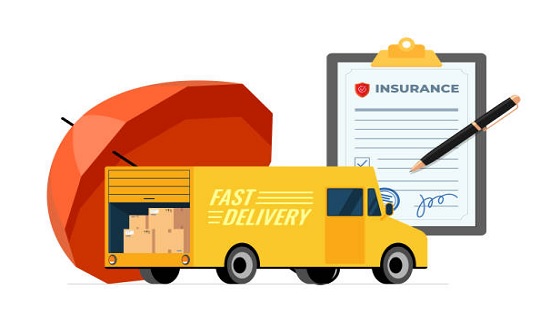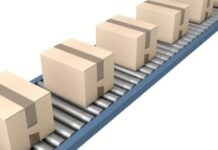The popularity of food delivery services has exploded in recent years, with more and more people opting to have meals delivered to their doorstep. While this is great news for the food delivery industry, it also means that there are more risks and challenges to consider when it comes to operating a successful delivery business. One of the most important things to consider is food delivery insurance, which can protect your business in the event of accidents, theft, or other unforeseen incidents. In this article, we’ll explore why food delivery insurance is so important and how it can help you protect your delivery business.


- Why food delivery insurance is important
- What types of coverage are available
- Choosing the right business insurance
- The benefits of food delivery insurance
- The drawbacks of food delivery insurance
- How to get the most out of your food delivery insurance
- The bottom line on food delivery insurance
- Case studies on food delivery insurance
- Further resources on food delivery insurance
1. Why food delivery insurance is important?
Food delivery insurance is essential for any business that provides food delivery services. This type of insurance is designed to protect delivery drivers, restaurants, and customers in the event of accidents or unforeseen incidents. Some of the most important reasons why food delivery insurance is important to include:
- Accidents on the road: Delivery drivers are at a higher risk of accidents due to the nature of their work. Food delivery insurance can provide coverage for any damages or injuries that may occur while on the job.
- Food spoilage or contamination: If food becomes spoiled or contaminated during delivery, it can lead to serious health risks for customers. Food delivery insurance can help cover the costs of any legal fees or medical expenses that may arise as a result of such incidents.
- Theft or damage to property: Food delivery drivers may also be at risk of theft or damage to their vehicles while on the job. Food delivery insurance can provide coverage for any damages or losses that may occur due to theft or vandalism.
Overall, food delivery insurance is an essential investment for any business that provides food delivery services. It can help protect your business from financial losses and ensure that your customers are kept safe and satisfied.
2. What types of coverage are available?
Food delivery insurance typically offers several types of coverage options to help protect your delivery business. There are several types of coverage available, including:
- Liability coverage: This type of coverage helps protect your business in the event that a customer becomes injured or sick as a result of consuming your food. Liability coverage can help cover any legal fees, medical expenses, or other costs associated with a lawsuit.
- Property damage coverage: This type of coverage provides protection in the event that your delivery vehicle or other property is damaged or stolen. It may assist in covering replacement or repair costs.
- Auto insurance: This type of coverage is required for any vehicles used in the course of business operations. It can help cover the costs of repairs or medical expenses in the event of an accident.
- Workers’ compensation insurance: This type of coverage provides benefits to employees who become injured or sick while on the job. It can help cover medical expenses, lost wages, and other costs associated with workplace injuries.
It’s important to carefully consider your business’s needs and risks when choosing a food delivery insurance policy. Work with a reputable insurance provider to help you select the coverage options that are right for your business.
3. Choosing the right business insurance
When choosing a food delivery insurance policy, it’s important to consider several key factors to ensure that you get the coverage you need. Here are some tips to help you choose the right insurance for your delivery business:
- Identify your risks: Take the time to identify the specific risks associated with your business. Consider factors such as the type of food you deliver, the location of your business, and the number of delivery drivers you employ.
- Shop around: Research different insurance providers to compare coverage options, costs, and other factors. Be sure to read the fine print and ask questions to ensure that you understand what is covered and what is not.
- Consider your budget: Choose a policy that provides the coverage you need while also fitting within your budget. Keep in mind that some insurance providers may offer discounts for bundling multiple policies together.
- Seek professional advice: Consult with an insurance agent or other professional to help you choose the right policy for your business.
By taking the time to carefully consider your options and choose the right insurance policy, you can help protect your business from financial losses and ensure that your customers are kept safe and satisfied.
4. The benefits of food delivery insurance
Food delivery insurance can provide many benefits to businesses that offer food delivery services. Here are some of the key advantages of having food delivery insurance:
- Protection against financial losses: Food delivery insurance can help protect your business from financial losses in the event of accidents, theft, or other incidents.
- Improved customer satisfaction: By providing your customers with the assurance that your business is covered by insurance, you can help increase their trust and confidence in your services.
- Compliance with legal requirements: Many states and municipalities require businesses that offer food delivery services to carry insurance. By having the right coverage in place, you can ensure that you are complying with all legal requirements.
- Peace of mind: Knowing that your business is covered by insurance can give you peace of mind and help you focus on providing the best possible service to your customers.
Overall, food delivery insurance is an important investment for any business that offers food delivery services. It can help protect your business from financial losses, improve customer satisfaction, and make certain that you are adhering to every legal requirement.
5. The drawbacks of food delivery insurance
While food delivery insurance can provide many benefits to businesses, there are also some potential drawbacks to consider. Here are some of the main drawbacks of food delivery insurance:
- High costs: Depending on the specific coverage options you choose, food delivery insurance can be quite expensive, which may be a financial burden for small businesses.
- Limited coverage: Some insurance policies may have limitations on the types of incidents that are covered, or may have high deductibles that can limit the effectiveness of the policy.
- Potential for fraud: In some cases, employees or customers may attempt to commit insurance fraud, which can result in higher premiums or denial of coverage.
- Complex claims process: Filing an insurance claim can be a complex and time-consuming process, which may be difficult for small business owners to navigate.
6. How to get the most out of your food delivery insurance?
To get the most out of your food delivery insurance policy, it’s important to follow some best practices. Here are some tips to help you maximize the benefits of your insurance coverage:
- Understand your policy: Take the time to carefully read and understand the terms of your insurance policy, including the types of incidents that are covered, deductibles, and limits.
- Follow safety guidelines: Implement safety guidelines for your delivery drivers and employees to minimize the risk of accidents and other incidents.
- Document incidents: Keep detailed records of any incidents that occur, including photos, witness statements, and other documentation that can be used to support an insurance claim.
- Work with a trusted insurance provider: Choose an insurance provider that is reputable and has experience working with businesses in the food delivery industry.
By following these best practices, you can help ensure that your food delivery insurance policy is effective and provides the protection your business needs.
7. The bottom line on food delivery insurance
In today’s fast-paced and competitive business environment, food delivery insurance is becoming increasingly important for businesses that offer food delivery services. While there are some potential drawbacks to consider, the benefits of having the right insurance coverage in place can help protect your business from financial losses, improve customer satisfaction, and ensure compliance with legal requirements.
To make the most of your food delivery insurance policy, it’s important to carefully consider your coverage options, shop around for the best rates, and follow best practices for maximizing the benefits of your insurance coverage.
8. Case studies on food delivery insurance
There are many examples of businesses in the food delivery industry that have benefited from having the right insurance coverage in place. For example, a pizza delivery driver who was involved in an accident that resulted in significant property damage and personal injuries was able to rely on his insurance policy to cover the costs of the incident.
Another example is a food delivery business that experienced a break-in and theft of their delivery vehicles. Thanks to their insurance coverage, they were able to replace the stolen vehicles and continue providing delivery services without interruption.
These case studies illustrate the importance of having the right insurance coverage in place to protect your business from unexpected incidents and financial losses. By choosing the right coverage options and working with a reputable insurance provider, you can help ensure that your business is well-protected and can continue to thrive in the competitive food delivery industry.
9. Further resources on food delivery insurance
If you’re interested in learning more about food delivery insurance, there are a variety of resources available to help you navigate this complex topic. One good starting point is to contact insurance providers directly to learn about the coverage options that are available to you. Additionally, there are many online resources, including industry associations, trade publications, and legal resources, that can provide valuable information and insights on food delivery insurance. It’s also a good idea to talk to other business owners in the food delivery industry to learn about their experiences with insurance and get recommendations for reputable insurance providers.






















